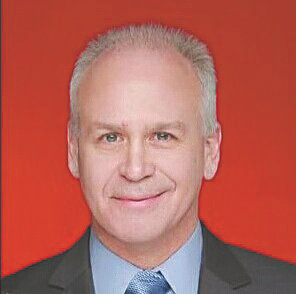
James Healy. [Photo provided to China Daily]
The recent passing of former United States president Jimmy Carter at the age of 100 was a stark reminder that, despite the myriad changes the world has seen since Carter's term in the White House (1977-81), developments in two key areas — Sino-US ties and the situation in the Middle East — are just as important now as then.
Carter's diplomatic achievements in both areas sealed his legacy: US diplomatic relations with the People's Republic of China were established on his watch, a monumental milestone whose impact continues to resonate today, and he helped broker the first peace treaty between Israel and an Arab neighbor (Egypt).
Beyond the global arena, however, the Carter presidency did not fully deliver what the American people hoped for at the time, which the White House Historical Association concedes in its biography of the 39th president.
"Jimmy Carter aspired to make government 'competent and compassionate', responsive to the American people and their expectations," the biography says. "His achievements were notable, but in an era of rising energy costs, mounting inflation, and continuing tensions, it was impossible for his administration to meet these high expectations."
To be fair, history was a bit unkind to Carter and his rather unremarkable predecessor, Gerald Ford, by sandwiching them as it did between standouts Richard Nixon and Ronald Reagan.
Yet, after his single term as president, Carter truly stood up and stood tall. In the ensuing decades, his dedicated efforts in the service of mankind proved that he was, without a doubt, a very decent, highly principled and widely influential man.
Indeed, Carter's winning of the 2002 Nobel Peace Prize recognized his tireless work to "find peaceful solutions to international conflicts, to advance democracy and human rights, and to promote economic and social development", the White House Historical Association bio notes.
Carter's driving sense of purpose reminded me of the stated mission of the all-boy, Jesuit-run Catholic high school I attended, which was to build "men for others".
At Christmas each year, under a program called Operation Others, we would participate in preparing and delivering meals to dozens of families in the community who, due to poverty or misfortune, might otherwise have gone hungry on that special day.
The idea was for us to personally deliver the meals to the homes of the local poor and interact with them, so we could not only see how they lived, but also have the chance to engage with them as equals.
Carter, a selfless and hardworking community man, was a kindred spirit.
He quite literally rolled up his sleeves and worked for decades with Habitat for Humanity, a charity that sprouted in his home state of Georgia in the early 1940s as a Christian service group whose aim was racial reconciliation.
Habitat for Humanity volunteers work side by side with people who need shelter to build a home for them. And Carter volunteered every year starting in 1984, with a hammer and nails in hand, to construct homes in the US and beyond.
"Habitat has successfully removed the stigma of charity by substituting it with a sense of partnership," Habitat for Humanity quoted Carter as saying. "The people who will live in the homes work side by side with the volunteers, so they feel very much that they are on an equal level."
This acknowledgment of "equal level" was a reflection of the deep humanity of Carter, the humble man who rose from the grassroots to defeat the only US president who was born a king. (Gerald Ford, the 38th US president, went by that name from about the age of 4, but in fact his name at birth was Leslie King Jr.)
According to Habitat for Humanity, over the course of more than 35 years, Carter and his wife, Rosalynn, who passed away in November 2023 at the age of 96, "worked alongside nearly 104,000 volunteers in 14 countries to build, renovate and repair 4,390 homes".
The memory of Carter as a sincere and caring man who personally helped build better lives for others should last as long, and provide just as much inspiration, as his legacy for playing a pivotal role in establishing the ties that have long since cemented the friendship between the US and China.